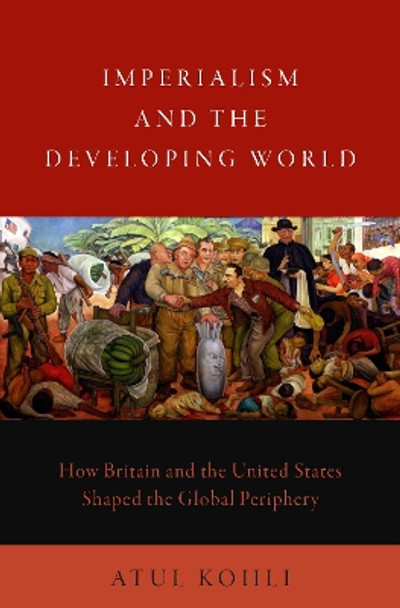Description
About the Author
Atul Kohli is the David K.E. Bruce Professor of International Affairs at Princeton University. He is the author of several books, including Poverty amid Plenty in the New India, which was a Foreign Affairs Best Book of 2012 on Asia and the Pacific, and State-Directed Development, winner of the 2005 Charles Levine Award of the International Political Science Association. He served as the chief editor of the journal World Politics from 2006-13 and was Vice President of the American Political Science Association during 2009-10.
Reviews
There is much to love about Imperialism and the Developing World. It is extensive, it is provocative, and it provides a great template for historically informed scholarship that is also relevant to contemporary political issues . . . a remarkably ambitious book that will be relevant to a multidisciplinary constituency of readers for years to come. * Andrew S. Rosenberg, Perspectives on Politics *
Imperialism and the Developing World is a creative and readable approach to the history of British and American imperialism .... [It] powerfully advances the concept of informal empire and demonstrates the significance of sovereignty in economic histories of imperialism. * Siddharth Sridhar, Left History *
[T]his is a good book, well written and reflects the labours of first class research and handling of sources. * Gabriel O. Apata, Theory, Culture and Society *
An immersive account of the history of imperialism for those seeking a refined and concise introduction to the empirical literature ... students of history and international relations will derive useful insights from the book, which can be used to initiate fruitful class discussions for graduate courses on this topic. * Efe Can Gurcan, Progress in Development Studies *
Kohli's new book marks an invaluable contribution to the studies of development in the non-Western world. The study sharpens our understanding of the political association between imperialism and underdevelopment by identifying the deterrence of the rise of a sovereign state as a key causal process. * Makio Yamada, Japanese Journal of Political Science *
an ambitious analysis of the imperialistic adventures of Great Britain and the United States across some 400 years ...Kohli's analysis is based on an enormous trove of historical sources, and frequently illustrated with striking quotes from contemporary actors and observers. ... [His] This Weberian framing ... may be the book's most important and enduring contribution. It is powerful enough to account for themes echoing across four centuries and two different imperial powers .... It is an articulate opening salvo in what is bound to be a productive scholarly conversation. * Sarah Babb, The Journal of Development Studies *
Kohli's new work is as important, equally engaging, and as much thoroughly researched as the first 'volume'. It answers three key questions: first, why do imperialists imperialise? Second, how do they do that? And, third, with what consequences on both the metropole and the imperialised country? * Diego Maiorano, Institute of South Asian Studies(ISAS), at the National University of Singapore(NUS), Institute of South Asian Studies, National University of Singapore *
The silos of regional expertise that divides the discipline of political science make Kohli's ambition and ability to construct such a thorough empirical and analytical exercise at this scale both rare and impressive. Some of the most rewarding moments of the book for me were the various insights these attentive explorations yielded. * Sandipto Dasgupta, New School for Social Research, New York, The India Forum *
Kohli makes an admirable foray into the common ground between history, political economy, and international relations. His volume should find a comfortable place on the shelves of all three. * Jason Parker, Texas A&M University, History: Reviews of New Books *
Book Information
ISBN 9780190069629
Author Atul Kohli
Format Hardback
Page Count 560
Imprint Oxford University Press Inc
Publisher Oxford University Press Inc
Weight(grams) 885g
Dimensions(mm) 152mm * 236mm * 46mm







